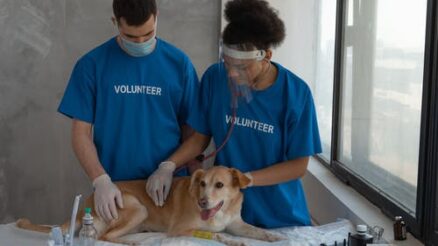It’s heartbreaking to see your adored kitty deal with an illness, and the prospect of surgery can be frightening. Thankfully, particular techniques can assist you and your pet in successfully finishing this challenging process. However, specific attention and care will be needed to ensure a successful surgical operation and a fast recovery. So, what should you do in the days before and after your pet’s surgery?
Cat Pre and Post Surgery Care Tips
If your kitty is scheduled for surgery, you may be anxious. That’s truly understandable. Whether it’s an optional spay or neuter, a non-elective procedure to remove or biopsy foreign tissues, or an emergency procedure because of a dreadful accident. Below are 5 ideas you can do to guarantee your pet’s surgery and recovery go well.
1. Don’t let your pet eat anything before surgery.
Before surgery, a pet cat must fast for a minimum of twelve hours. That implies you should take the food meal from the dining room the night before the surgery. After 6 o’clock in the evening, many veterinarians recommend giving no food or treats. This helps lower the threat of aspiration (inhaling) throughout or shortly after surgery. A vet hospital offers some other surgical services for different health conditions.
2. Calculate the cost of surgery.
Make certain you receive a quote of the surgery cost from the vet on the day of the procedure. Likewise, a good sense of the schedule will decide the total costs you’ll need to pay. It’s crucial to determine how long the surgery will take, how much time the cat will be in the healthcare facility, and when to go back to pick it up. It is also important to know about the other services they offer, such as pet vaccination to improve your pet’s immune system after recovering from surgery.
3. Prepare your cat for potential anesthetic impacts.
The cat will have obtained some kind of anesthetic before the surgery. There can be numerous visible consequences, based on which type was used. To start with, the kitty will probably be tired after the surgery. This can linger for approximately twenty-four hours or even a little bit longer.
Because anesthetic causes the body temperature level to drop, the feline will likely shiver to regain its normal temperature. The hose used to deliver a gas anesthetic might irritate your throat, causing coughing. Diarrhea and vomiting are also prevalent. Speak with a vet in charge of your pet’s treatment if you want to see your pet before releasing it. You can find all this info on a hospital’s website like CarlsbadAnimalHospital.com. This will determine the after-effects of the procedure.
4. Be ready for your cat’s post-surgery effects.
Various danger indicators should motivate you to call your veterinarian following cat surgery. Refusal to eat for beyond twenty-four hours, extensive vomiting, diarrhea, or cough after 48 hours, continued bleeding from the site, or signs of infection are all examples. Inflammation, pus, swelling, or gapping of the injury are signs to look for at the incision site (the laceration, which must be held tightly closed, starts to open up).
5. Do not offer your kitty any painkillers.
Even if your pet is in pain, you should not give your cat medicines at home. The only pain relievers that are safe for pets have to be provided by a veterinarian. Failure to do so may cause the condition to get worse due to an incorrect dose or prescription.


